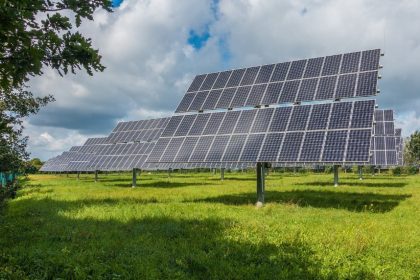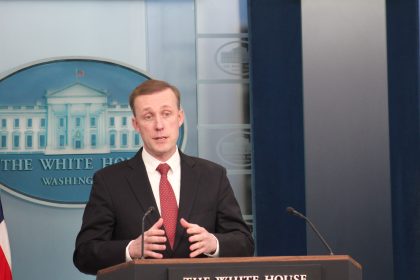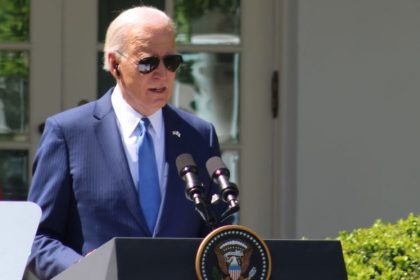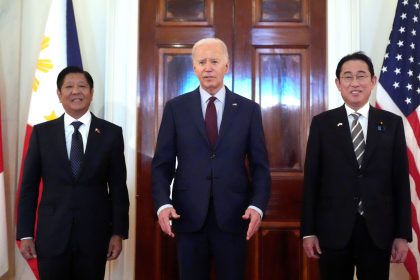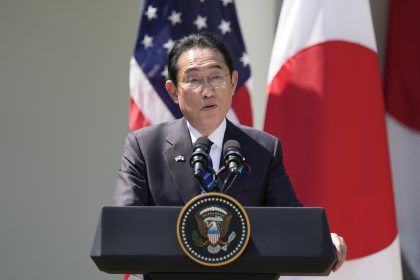Biden Rejoices After House Achieves ‘Monumental’ Breakthrough on Infrastructure
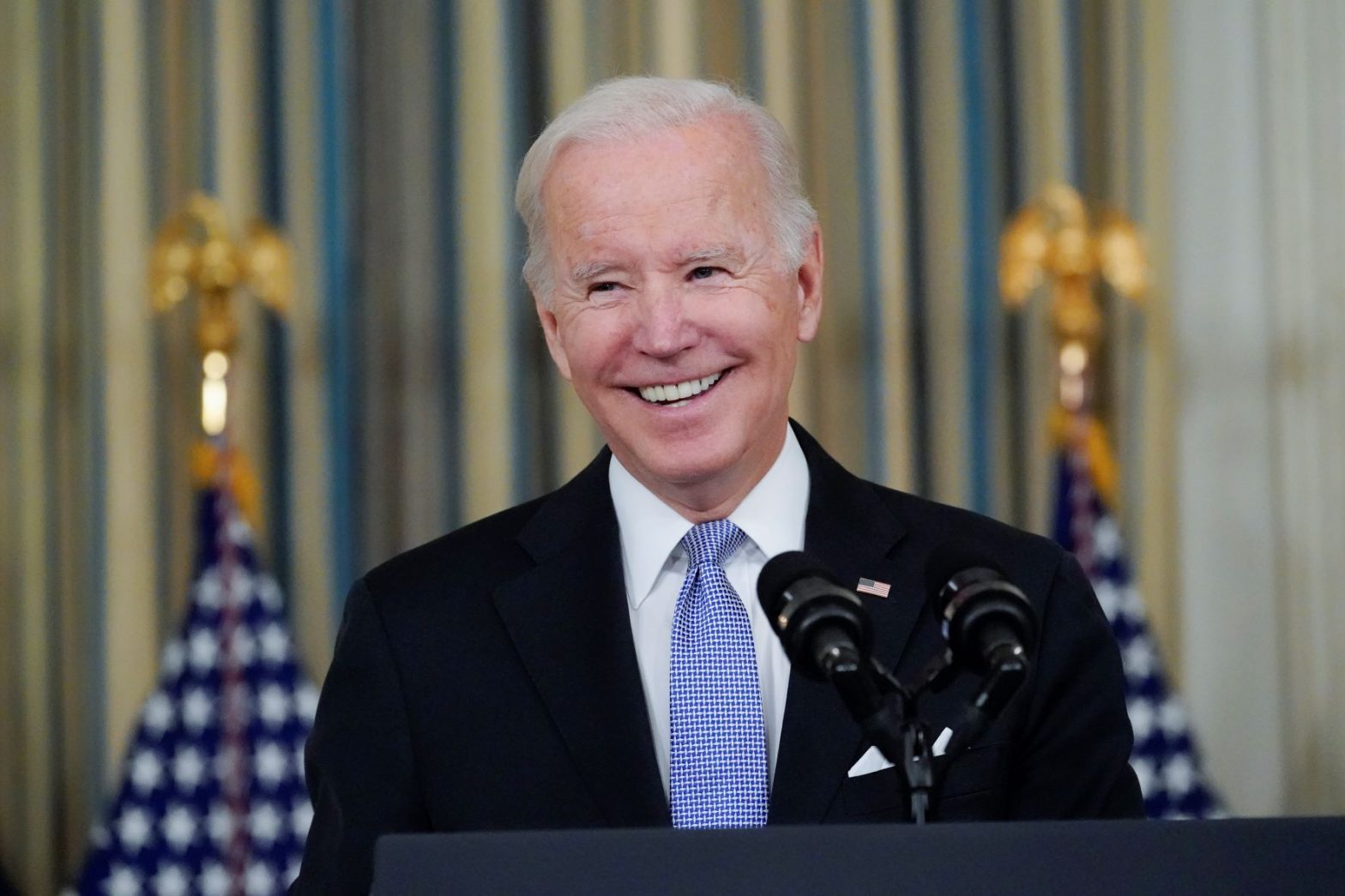
WASHINGTON — If there’s ever been a broader smile on the face of a president than President Joe Biden wore Saturday morning in the State Dining Room of the White House, history was not on hand to record it.
Beaming like a kid on Christmas morning, he stepped up to the microphone set up before the assembled reporters and with a simple declaration lifted a weight off the White House and the Capitol.
“Well, finally — Infrastructure week,” Biden said, his eyes sparkling with merriment.
“I’m so happy to say that: Infrastructure week,” he said, breaking into laughter. “I don’t think it’s an exaggeration to suggest that we took a monumental step forward as a nation.”
That monumental step forward — often imperilled during the previous 24 hours — was the passage, at long last, of the bipartisan infrastructure bill.
The final vote tally, reached shortly before 11 p.m. on a Friday when activity had begun on the House floor at 8 a.m., was 228-206.
In the end, 13 moderate Republicans bucked their party’s leadership and joined a large majority of the Democrats in supporting the $1 trillion measure, while six far-left Democrats opposed it.
Because the bill passed the Senate weeks ago, it will now go directly to the president’s desk for his signature.
On Saturday morning, Biden said he would wait to hold a signing ceremony until the Democrats and Republicans who voted for it return to Washington after a week’s recess.
Once the president does sign the bill, it will provide $550 billion in new funds over 10 years to rebuild the nation’s aging roads, bridges and highways, while improving broadband internet access and modernizing the national energy grid.
The measure also provides $50 billion to help communities across the nation prepare for and mitigate the impacts of climate change, and help them cope with the more frequent and severe wildfires, storms and floods that are predicted to occur as global warming worsens.
But before the infrastructure bill passed, the even larger, $1.75 trillion budget reconciliation bill, also known as the Build Back Better Act, was put on hold as a half dozen fiscally responsible moderate Democrats refused to endorse it until an analysis of it could be done by the nonpartisan Congressional Budget Office.
A Once In A Generation Investment
On Saturday, Biden spent more than an hour with reporters, elatedly describing how what he called “a once-in-a-generation investment” will create millions of jobs modernizing the nation’s infrastructure and turning “the climate crisis into an opportunity.”
“It puts us on a path to win the economic competition of the 21st century that we face with China and other large countries and the rest of the world,” he said.
Biden also stressed that the infrastructure projects that will soon commence across the country will create “good-paying jobs, union jobs that can’t be outsourced.”
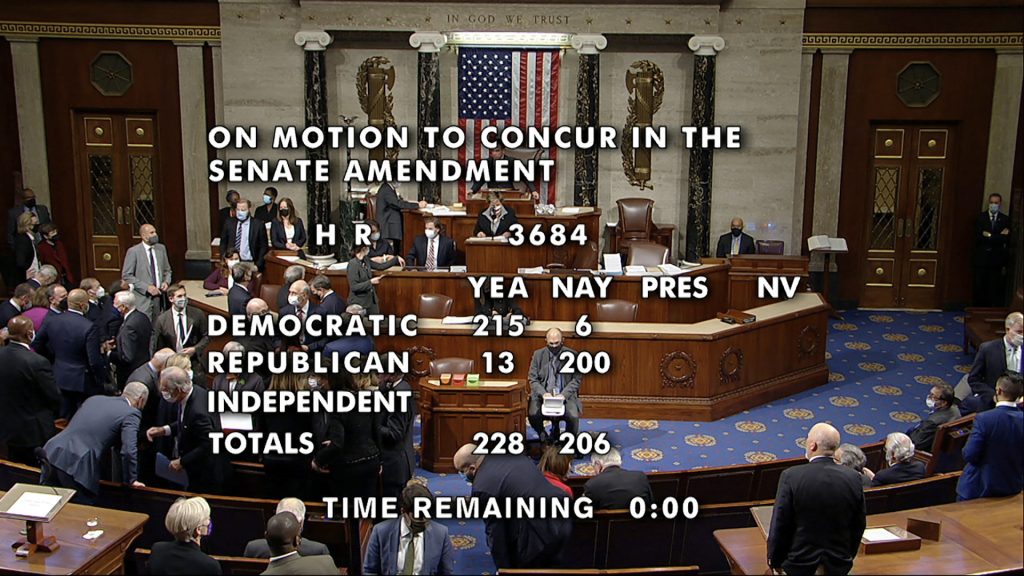
He said the investment the bill makes in passenger rail is the most significant investment in that sector in 50 years, and the investment in the nation’s roads and bridges, the most significant investment in 70 years.
“And it includes more investment in public transit than we’ve ever made. Period,” he said.
Biden also announced that he plans to visit ports next week to highlight how ports, airports and freight rail will benefit from the new investments and how the projects will steadily help relieve bottlenecks across the country.
“It’s going to make it easier for companies to get goods to market more quickly and reduce supply chains’ bottlenecks now and for decades to come, and it’s going to help ease the current inflationary pressures.”
Biden also lauded the clean energy and climate investments in the bill, noting that it funds the construction of the first-ever national network of charging stations across the country.
In all, he said, the bill will pay for over 500,000 charging stations, stations that will be needed as the nation’s automakers fulfill commitments to make 50% of their vehicles run on electricity by 2030.
“You’ll be able to go across the whole darn country, from East Coast to West Coast, just like you’d stop at a gas station now,” Biden said.
“[The bill] will get America off the sidelines on manufacturing — manufacturing of solar panels, wind turbines, battery storage, energy and power for electric vehicles from school buses to automobiles,” the president continued.
“And it will reward companies for paying good wages and for getting materials for their products from right from here in America and America exporting and providing the rest of the world with these technologies that are generated here in the United States as we go green around the world,” he said.
“We’re looking forward to having shovels in the ground to begin rebuilding America,” Biden said as concluded his remarks. “And for all of you at home who feel left behind and forgotten in an economy that’s changing so rapidly, this bill is for you.”
A Long Day’s Journey to a Deal
The route to Saturday’s victory lap was a difficult one.
Chastened by the results of last Tuesday’s off-year elections — elections that saw blue Virginia turn red and Republicans win scores of critical races across the country, House Democrats moved with renewed urgency to pass Biden’s signature legislative initiative.
In fact, House Speaker Nancy Pelosi vowed a vote would be held on both the bipartisan infrastructure bill and the reconciliation package by the end of the week.
Friday dawned with the Democrats’ credibility on the line. Within minutes of House Republicans introducing a motion to adjourn, Pelosi was in the midst of a day-long siege.
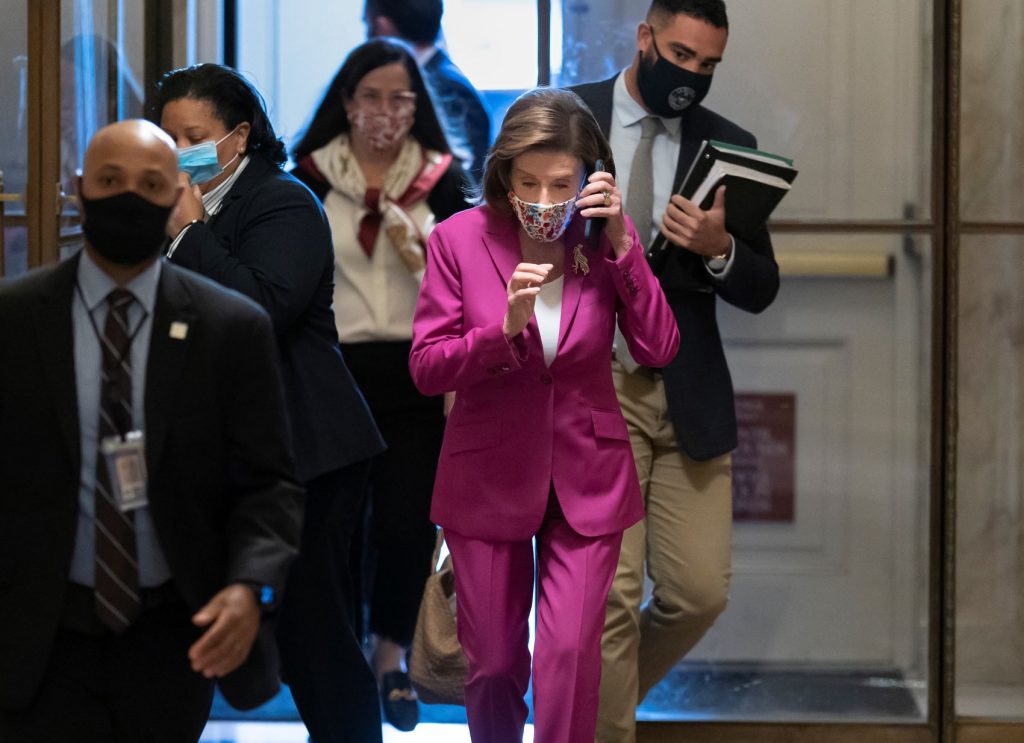
The problem, as it has always been with this legislation, is that members of the progressive wing of the party refused to back the infrastructure bill without a vote, at the same time, on the reconciliation package that includes major new social policy and climate related spending.
They couldn’t get that guarantee, however, because Democratic moderates said they wouldn’t support the reconciliation bill without a scoring by the CBO.
In a chamber with a slim Democratic majority, those positions amounted to a stand off.
Slowly, the minutes and hours ticked by, with the motion to adjourn offered by Rep. Andy Biggs, R-Ariz., seemingly frozen in a legislative limbo. For more than seven hours the question stood unresolved, with 10 votes uncounted, eventually making it the chamber’s longest vote in modern history.
Meanwhile, Pelosi and Biden struggled for an agreement to guarantee some kind of tangible victory before midnight.
“Welcome to my world, this is the Democratic Party,” Pelosi said to reporters at one point as she passed from one closed-door meeting to another.
“We’re not the lock-step party,” she added.
Later, Pelosi would describe the fractious nature of her party as “an additional challenge.”
“But I see every challenge as an opportunity,” she said.
Finally, bowing to unrelenting resistance from the House moderates, Pelosi decided to advance the bipartisan infrastructure bill while putting final vote on the budget reconciliation bill on hold.
Shortly after 3 p.m., House Majority Leader Steny Hoyer told members of the caucus that the chamber would begin debate within the hour on the reconciliation bill, a sweeping $1.9 trillion package of social and climate spending measures, but did not indicate when a final vote would occur.
He said a second vote on the bipartisan infrastructure bills and the rule to consider it would likely begin sometime after 4:30 p.m., the timing depending on further Republican efforts to stall the advancement of Biden’s domestic agenda.
Moments later, Pelosi sent out a letter to the Democratic caucus, “to describe a path forward.”
“In order to make progress on the president’s vision it is important that we advance the Bipartisan Infrastructure Framework and the Build Back Better Act today,” she wrote.
“The Bipartisan Infrastructure Framework rule and debate have already happened. Now, we will bring to the floor the BIF and a rule for consideration of the Build Back Better Act,” she continued, adding, “The agenda that we are advancing is transformative and historic, hence challenging.”
Rep. Pramila Jayapal, D-Wash., chair of the Congressional Progressive Caucus, immediately rejected the plan, holding firm to the group’s stance that both bills move together.
In the end, however, most of the progressives accepted a written commitment from five of their moderate colleagues that they would back the reconciliation bill in a vote before Nov. 15 as long as the CBO says the numbers add up.
The moderate Democrats signing the pledge were Reps. Ed Case, of Hawaii, Josh Gottheimer, of New Jersey, Stephanie Murphy, of Florida, Kathleen Rice, of New York and Kurt Schrader, of Oregon.
In a statement posted to Twitter late Friday night, they said: “We commit to voting for the Build Back Better Act, in its current form other than technical changes,” as soon as they obtain an estimate from the Congressional Budget Office consistent with White House figures showing that the measure is fully paid for.
Dan can be reached at [email protected] and at https://twitter.com/DanMcCue

















